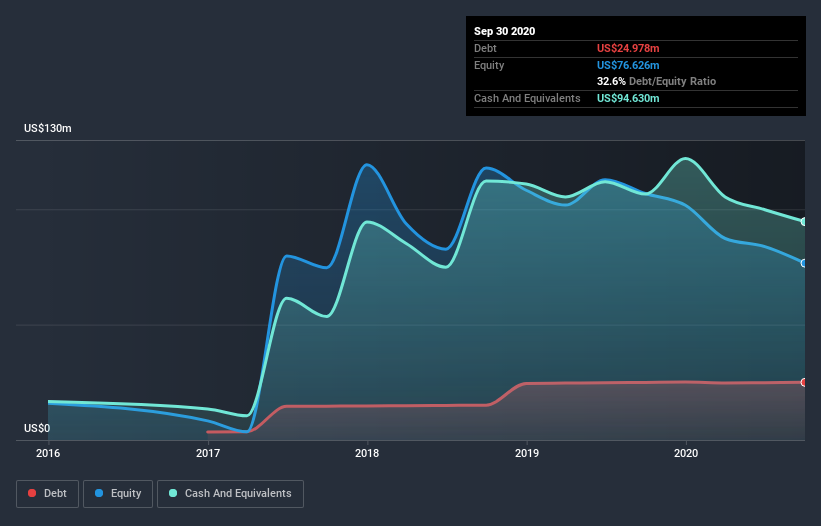Is Savara (NASDAQ:SVRA) Using Too Much Debt?
Some say volatility, rather than debt, is the best way to think about risk as an investor, but Warren Buffett famously said that 'Volatility is far from synonymous with risk.' So it seems the smart money knows that debt - which is usually involved in bankruptcies - is a very important factor, when you assess how risky a company is. Importantly, Savara Inc. (NASDAQ:SVRA) does carry debt. But should shareholders be worried about its use of debt?
Why Does Debt Bring Risk?
Debt is a tool to help businesses grow, but if a business is incapable of paying off its lenders, then it exists at their mercy. If things get really bad, the lenders can take control of the business. However, a more frequent (but still costly) occurrence is where a company must issue shares at bargain-basement prices, permanently diluting shareholders, just to shore up its balance sheet. By replacing dilution, though, debt can be an extremely good tool for businesses that need capital to invest in growth at high rates of return. When we think about a company's use of debt, we first look at cash and debt together.
See our latest analysis for Savara
How Much Debt Does Savara Carry?
As you can see below, Savara had US$25.0m of debt, at September 2020, which is about the same as the year before. You can click the chart for greater detail. But it also has US$94.6m in cash to offset that, meaning it has US$69.7m net cash.
A Look At Savara's Liabilities
According to the last reported balance sheet, Savara had liabilities of US$7.64m due within 12 months, and liabilities of US$25.1m due beyond 12 months. Offsetting these obligations, it had cash of US$94.6m as well as receivables valued at US$527.0k due within 12 months. So it can boast US$62.4m more liquid assets than total liabilities.
This luscious liquidity implies that Savara's balance sheet is sturdy like a giant sequoia tree. Having regard to this fact, we think its balance sheet is as strong as an ox. Succinctly put, Savara boasts net cash, so it's fair to say it does not have a heavy debt load! The balance sheet is clearly the area to focus on when you are analysing debt. But it is future earnings, more than anything, that will determine Savara's ability to maintain a healthy balance sheet going forward. So if you're focused on the future you can check out this free report showing analyst profit forecasts.
Given its lack of meaningful operating revenue, Savara shareholders no doubt hope it can fund itself until it has a profitable product.
So How Risky Is Savara?
By their very nature companies that are losing money are more risky than those with a long history of profitability. And the fact is that over the last twelve months Savara lost money at the earnings before interest and tax (EBIT) line. And over the same period it saw negative free cash outflow of US$41m and booked a US$68m accounting loss. However, it has net cash of US$69.7m, so it has a bit of time before it will need more capital. Overall, its balance sheet doesn't seem overly risky, at the moment, but we're always cautious until we see the positive free cash flow. There's no doubt that we learn most about debt from the balance sheet. However, not all investment risk resides within the balance sheet - far from it. Case in point: We've spotted 5 warning signs for Savara you should be aware of, and 1 of them is significant.
If, after all that, you're more interested in a fast growing company with a rock-solid balance sheet, then check out our list of net cash growth stocks without delay.
This article by Simply Wall St is general in nature. It does not constitute a recommendation to buy or sell any stock, and does not take account of your objectives, or your financial situation. We aim to bring you long-term focused analysis driven by fundamental data. Note that our analysis may not factor in the latest price-sensitive company announcements or qualitative material. Simply Wall St has no position in any stocks mentioned.
Have feedback on this article? Concerned about the content? Get in touch with us directly. Alternatively, email editorial-team (at) simplywallst.com.

